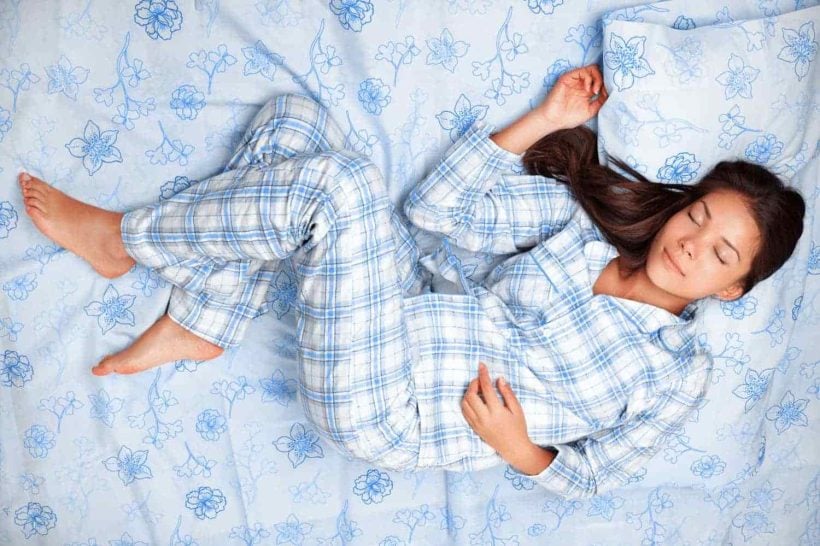According to the National Sleep Foundation, 50 to 70 million Americans have problems sleeping. Left untreated, these problems can contribute to a variety of health issues including high blood pressure, diabetes, depression, and even stroke.
Plenty of medical cannabis patients have offered anecdotes of better sleep as a result of nightly marijuana use, but the evidence doesn’t stop there. A recent study conducted by the University of Mexico observed that sleep aid purchases dropped “noticeably” following recreational marijuana legalization, suggesting that marijuana’s benefit as a sleep aide is more than just an idle claim.
If you are one of the many patients unfortunate enough to have trouble sleeping at night, medical marijuana may be able to help!
Marijuana And Sleep Research
Research on marijuana and sleep is promising.
One recent study published in the British Medical Journal: Supportive and Palliative Care found that marijuana was able to help insomniac participants fall asleep, and stay asleep, throughout the night.
While this is great, one caveat to this was that with chronic pain patients specifically, tolerance to marijuana’s sleep benefits was noted. Due to tolerance, sleep interruptions occurred and patients also began having issues getting to sleep. (For tips on reducing tolerance, see: How to Reverse Marijuana Tolerance.)
Overall, in comparison to non-users, those who used marijuana were better able to sleep throughout the night, without any interruptions, with authors coming to the conclusion that:
[Medical cannabis] use may have an overall positive effect on maintaining sleep throughout the night in chronic pain patients.
At the same time, tolerance towards potential sleep-inducing properties of [medical cannabis] may occur with frequent use.
Lastly, a study published by the Canadian Medical Association Journal found that after inhaling 25mg of 9.4% THC cannabis three times a day, over the course of 5 days, neuropathic pain patients experienced reduced pain intensity and better sleep.
Medical Marijuana: Sleep Tips
If you’re interested in trying medical marijuana to improve your sleep, there are a few things you should know to make the most of it.
SOME STRAINS WORK BETTER THAN OTHERS
Medical marijuana is available in different strains, or varieties, which are most commonly characterized as indica or sativa. Depending on which strain you choose, its effect on sleep may vary.
And while it’s commonly believed that indica strains are what you want for the best effects on sleep, it’s not quite that simple. In an article on cannabis and sleep, Leafly suggests that patients pay attention to which strains work best for them when it comes to sleep, and note whether they are a CBD or THC-dominant strain. (For more on the growing controversy over indica/sativa labels, see: Sativa vs. Indica: What’s the Difference?.)
Also important is a strain’s terpene profile. Terpenes are a class of organic compounds found in many different plants, including cannabis, and produce a variety of effects of their own. Using other terpene-heavy natural remedies such as chamomile and lavender, may potentially increase marijuana’s sleep-improving effects.
THC AND CBD DIFFER IN HOW THEY AFFECT SLEEP
Different cannabinoids, such as CBD and THC, effect sleep patterns in different ways.
A study published in the Journal of Clinical Psychopharmacology found that 15 milligrams of THC had sedating effects, while 15 milligrams of CBD was found to increase alertness and wakefulness.
As the study authors concluded:
Fifteen milligrams THC would appear to be sedative, while 15 mg CBD appears to have alerting properties as it increased awake activity during sleep and counteracted the residual sedative activity of 15 mg THC.
In a separate survey of adults suffering from anxiety and poor sleep published in the Permanente Journal, two-thirds of participants reported better sleep after one month of using CBD. (It’s important to note that one-fourth of those surveyed reported worsening symptoms.)
These studies suggest that while cannabis has a positive effect on sleep for many, like all medications: medical marijuana may not work for everybody when it comes to sleep.
MARIJUANA MAY HELP THOSE WITH SLEEP APNEA
For those suffering from sleep apnea, a sleep disorder where breathing repeatedly stops and starts throughout the night, medical marijuana may be beneficial.
A 2013 study published in Frontiers in Psychology found that the synthetic cannabinoid dronabinol, made to mimic THC, could improve symptoms in those suffering from sleep apnea. A study published in the peer-reviewed journal Sleep produced similar findings.
MEDICAL MARIJUANA MAY MAKE YOU DREAM LESS
Several studies have observed that cannabis use can reduce the amount of time that patients spend in REM sleep, which is the sleep cycle when dreams most often occur. REM sleep and dreaming are an important part of the sleep cycle and is believed to be when your brain processes and stores information about the events that happened during the previous day.
For those suffering from symptoms of PTSD, specifically night terrors, this effect may be viewed as beneficial. Figures suggest that between 71% and 96% of those diagnosed with PTSD suffer from night terrors. If you are one of those unfortunate enough to be dealing with night terrors, marijuana’s effects on REM sleep may be beneficial.
THINGS TO WATCH FOR WHEN USING MARIJUANA FOR SLEEP
While medical marijuana may benefit sleep in a variety of ways, there are a few potential drawbacks you should watch for:
If you’re a regular marijuana user and cease use, research suggests you may experience worsening sleep. Researchers observed that upon ceasing marijuana use, participants experienced shorter sleep duration, less slow-wave sleep, and took longer to fall asleep. Due to the small sample size of the study, researchers noted that it was difficult to determine causation.
Additionally, excessive nightly cannabis use may cause a “hangover” the next morning. However, research on this claim is slim, with one small study finding patients felt lethargic and foggy upon waking. (For more information, see: Are Marijuana Hangovers Real?.)




